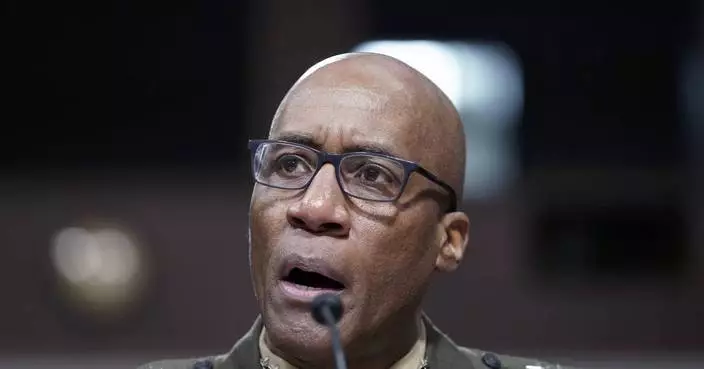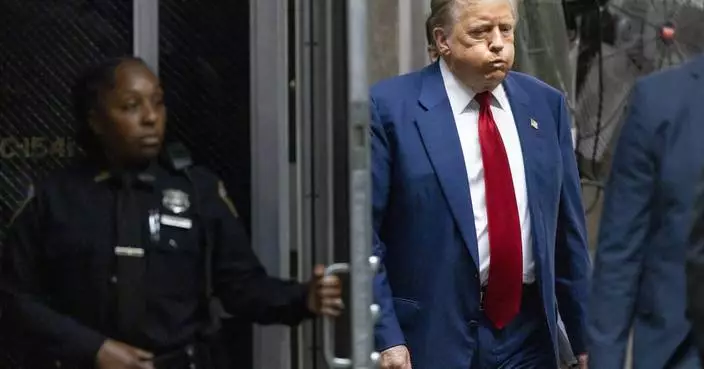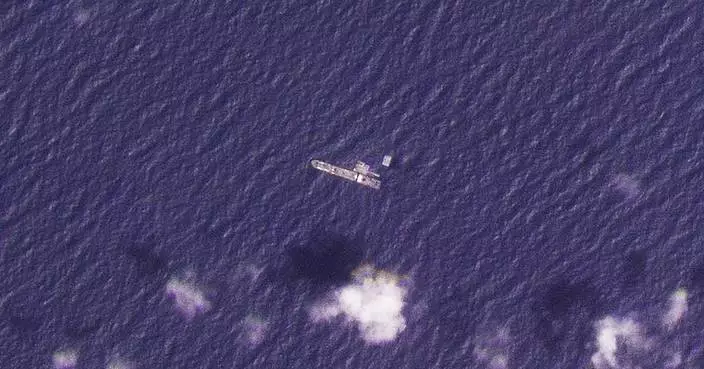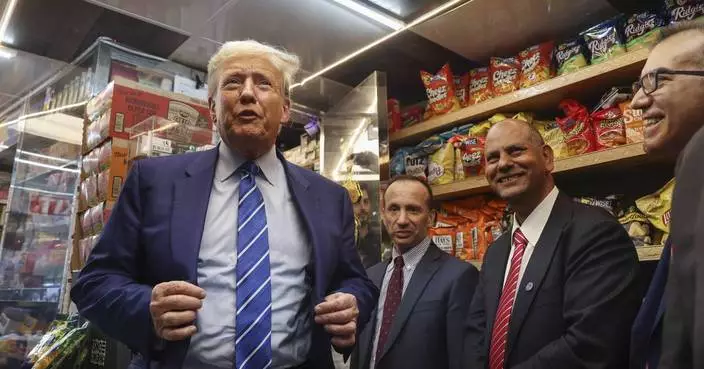A Connecticut police officer's membership in the Proud Boys, a far-right group known for engaging in violent clashes at political rallies, didn't violate department policies, the town's police chief has concluded in response to a civil rights group's concerns.
The East Hampton officer, Kevin P. Wilcox, "stopped his association" with the Proud Boys in February, about five months before the Lawyers' Committee for Civil Rights Under Law inquired about his social media connections with other group members, Police Chief Dennis Woessner said.
In a letter to the Washington-based civil rights group, the police chief acknowledged that Wilcox had been a Proud Boys member and made online payments to a group leader. The rights group described those publicly visible, online transactions as monthly dues that helped fund the Proud Boys' "violent or otherwise illegal" activities.
But the chief said he reviewed the matter, received an "explanatory report" from Wilcox and closed the department's inquiry as being "unfounded," with no evidence to support a policy violation. Wilcox "adamantly denies being associated with white supremacists' groups," the chief wrote in a letter dated Sept. 13.
Kristen Clarke, the civil rights group's president and executive director, said she was "astounded" by the police chief's refusal to take any action against the officer.
"In an era where we are seeing a spike in white supremacist activity, this should sound an alarm. It should not be business as usual," Clarke said during an interview Tuesday.
Wilcox didn't immediately respond Tuesday to a message left at the town's police station or a text message and voicemail left at an apparent telephone listing for him.
He has been an East Hampton police officer since 1999 and never had any complaints of racial bias made against him, according to Woessner. The chief said department records show Wilcox, who patrols a town with an overwhelmingly white population, has stopped only white people between January 2018 and September 2019.
"There is no question that he is not a white supremacist," Woessner said Tuesday.
Asked what he knows about the Proud Boys, the chief said, "Only what I searched on the internet."
East Hampton has roughly 13,000 residents and is about 20 miles southeast of Hartford. On its website, the town's police department says it currently has 11 officers and four sergeants.
An initial letter from Clarke to Woessner, dated July 24, noted that a federal jury in 2008 awarded more than $27,000 in damages to a man who accused Wilcox and other East Hampton officers of using excessive force during an arrest.
The plaintiff, Alan P. Clark, claimed Wilcox repeatedly struck him in the head with a metal flashlight while trying to subdue him. Clark said he needed about 14 staples to close his head wounds.
Jurors concluded that Wilcox violated Clark's constitutional right to be free from excessive force and decided the officer was liable for just over $11,000 in damages to compensate Clark for his injuries. An attorney who represented Clark said Tuesday that the parties reached a confidential settlement less than two months after the trial.
"Officer Wilcox's association with white supremacists on public platforms, as well as his history of violence, risks interfering with your department's operations by disrupting the working relationships between the East Hampton Police Department and the community it serves," Clarke wrote in her July 24 letter to the chief.
In a Sept. 26 response to the chief's Sept. 13 letter, Clarke wrote that the police department should immediately review any stops, arrests or investigations by Wilcox "to determine whether or not they were infected with racial bias." She also asked for a list of any complaints against the officer involving allegations of racial bias, discrimination or harassment.
The chief hasn't responded to the letter, Clarke said.
Wilcox isn't the first law enforcement officer linked to the Proud Boys, a group started in 2016 by Vice Media co-founder Gavin McInnes.
Last year, a Louisiana sheriff's department fired a deputy who had publicly identified himself as a Proud Boys member and was an administrator of the Facebook page for the group's local chapter. The Plaquemines Parish Sheriff's Office said its deputy violated an internal policy prohibiting employees from engaging in social media activity that "negatively affects the public perception" of the department, The New Orleans Advocate reported in August 2018.
McIness and the Proud Boys have described the group as a politically incorrect men's club for "Western chauvinists" and deny affiliations with far-right extremist groups that overtly espouse racist and anti-Semitic views. In February, McInnes sued the Alabama-based Southern Poverty Law Center for labeling the Proud Boys as a hate group.
In response to the lawsuit, the law center said Proud Boy members often spread "outright bigotry" over the internet and have posted social media pictures of themselves with prominent Holocaust deniers, white nationalists and "known neo-Nazis."
"Soon after McInnes unveiled the Proud Boys to the world, the group began making headlines for its members' involvement in often-violent, ideological street confrontations with other groups," law center attorneys wrote in a court filing.
In New York City in October 2018, police arrested several Proud Boys members who brawled with anti-fascist protesters following a speech by McInnes at a Manhattan Republican club. Proud Boys members also have frequently clashed with counterprotesters at rallies in California and Oregon.
Clarke noted that the Philadelphia Police Department placed 72 officers on administrative leave in June after a nonprofit group published a review of personal Facebook posts or comments by officers in several U.S. police departments, including messages that were racist, Islamophobic and identified with right-wing militia groups.
Follow Michael Kunzelman on Twitter at: https://twitter.com/Kunzelman75 .










